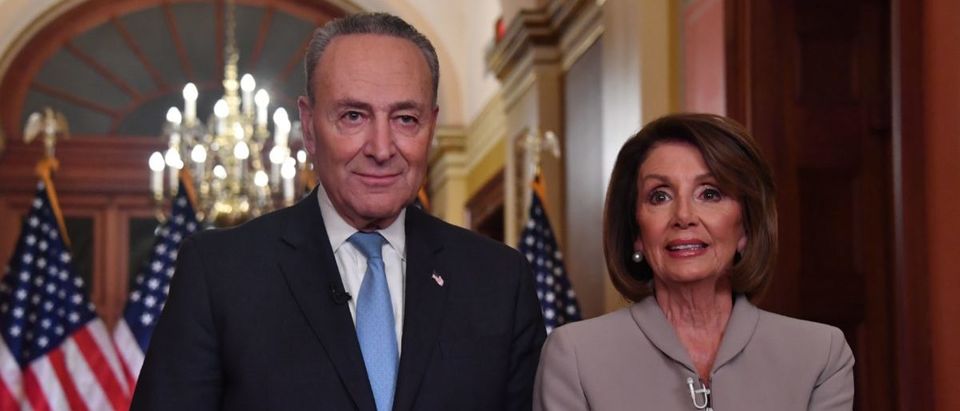On January 8, two bills were introduced in Congress to impose so-called “universal” background checks. The bills, H.R. 8 and S. 42, are being misleadingly described as simply requiring background checks on all sales of firearms, but this is just a small part of what these overbroad pieces of legislation would do.
A hearing on this gun control legislation will take place in the Judiciary Committee of the United States House of Representatives next week. Therefore, it is vital that gun owners immediately contact their Representative to urge them to oppose this legislation, and that gun owners encourage their freedom-minded family and friends to do the same.
We’ve created a new webpage to dispel many of the myths being circulated by proponents of these gun control bills.
This legislation won’t stop criminals, but it does create many traps for law-abiding gun owners to unwittingly violate the law.
Traps For Law-Abiding Gun Owners
Both bills would make it a crime, subject to certain exceptions, to simply hand a firearm to another person. Any time gun owners carry out this simple act, they would potentially be exposing themselves to criminal penalties. While the bills do create some exceptions, they are overly complicated and create many traps for unwary gun owners. Accidental violations of these complicated provisions are not excused under the proposed legislation.
Expanded Background Checks Don’t Work
Proponents of so-called “universal” background checks claim that this legislation is the “most important” thing that can be done to stop dangerous people from obtaining firearms. This is a lie. There is no evidence that expanded background checks are useful for this purpose.
Just last year, a study by anti-gun researchers confirmed that expanded background checks in California did not reduce gun homicides or gun suicides.
This finding is consistent with a review of past studies on expanded background checks by the RAND Corporation that found that “evidence of the effect of private-seller background checks on firearm homicides is inconclusive.”
In 2013, the Department of Justice’s National Institute of Justice researched so-called “universal” background checks and determined that they would be not be effective without further harsh firearms restrictions and efforts to combat straw purchasing.
Criminals are not deterred by background checks. ATF has reported, “[t]he most frequent type of trafficking channel identified in ATF investigations is straw purchasing from federally licensed firearms dealers. Nearly 50 percent … .” A Chicago-area inmate explained this reality to researchers from the University of Chicago in relation to Illinois’s stringent firearm licensing regime for a 2015 study, stating, “All they need is one person who got a gun card in the ‘hood’ and everybody got one.”
A 2016 Department of Justice survey of “state and federal prisoners who had possessed a firearm during the offense for which they were serving” found that the most common source of prisoner firearms was “Off the street/underground market.” This was defined as “Illegal sources of firearms that include markets for stolen goods, middlemen for stolen goods, criminals or criminal enterprises, or individuals or groups involved in sales of illegal drugs.” Less than one percent had obtained their firearm from a gun show.
The research confirms that anti-gun members of Congress aren’t interested in actually addressing violent crime; they’re just trying to deflect the blame on law-abiding gun owners.
Established in 1975, the Institute for Legislative Action (ILA) is the “lobbying” arm of the National Rifle Association of America. ILA is responsible for preserving the right of all law-abiding individuals in the legislative, political, and legal arenas, to purchase, possess and use firearms for legitimate purposes as guaranteed by the Second Amendment to the U.S. Constitution.


